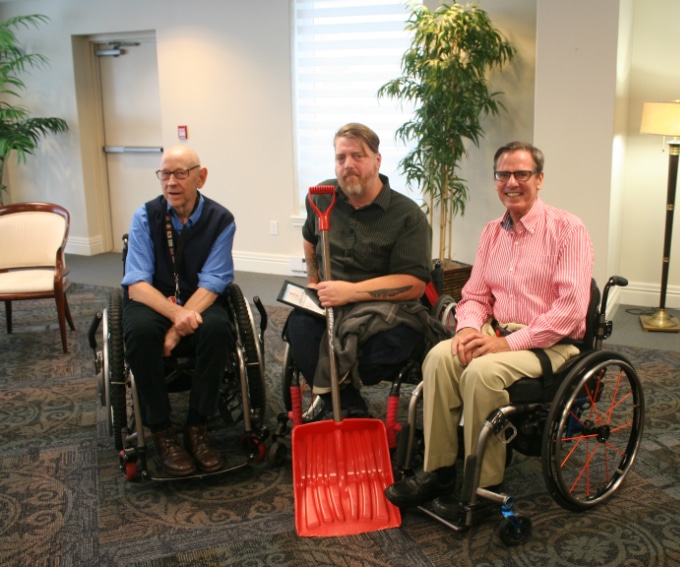
KJIPUKTUK (Halifax) – On March 1, 2017 a Nova Scotia Supreme Court judge ordered the Nova Scotia Human Rights Commission (NSHRC) to change how it deals, or not deals, with complaints.
Two years later he NSHRC is still refusing to say if it made the necessary changes to its intake processes, and if it did, what these processes now look like.
The case against the NSHRC was initiated by a group of wheelchair users who believed that the way public health-related legislation was deemed not to apply to inaccessible public washrooms in restaurants amounted to discrimination.
The NSHRC had screened out their complaint without investigation, and that was wrong, Justice Frank Edwards wrote.
When you lodge a complaint you have the right that this complaint will be inquired into, wrote the judge. If as a Commission you feel you’re too busy, go talk to the government, or change the law, but don’t just turn down complaints without providing reasons that are deemed valid in the Human Rights Act.
Just a couple of months ago the group of wheelchair users was vindicated when they won their human rights case. That’s correct, the same case the NSHRC had initially rejected off hand.
When in April of this year I asked if the Commission had changed its processes I was told to just be patient, as the Commission was reviewing its policies and procedures in light of the court case, and that “once they are approved by our Commissioners, they will be made publicly available on the Nova Scotia Human Rights Commission website.”
There is still nothing on the NSHRC website, so I asked again.
Not yet, was the answer.
“We expect the revised policies to be approved at the Commission meeting in February. Following approval they will be posted to the Commission’s website,” writes Jeff Overmars on behalf of the NSHRC.
When I asked whether intake processes on the ground had changed, I was told that was secret.
“I’m not in a position to discuss details of the revised dispute resolution policies until they are approved by Commissioners,” Overmars writes.
Mind you, I asked whether processes had changed, not how they had changed…
Two years later!
“That’s typical, and no surprise,” says Warren (Gus) Reed, one of the original complainants in the wheelchair case.
“It seems like an unconscionably long time. I guess the way they get away with that is because nobody has taken them to court. I have no other explanation,” Reed says. “You get involved with the NSHRC and it is one frustration after the other.”
See also:
- Gatekeepers or advocates? Disability activist speaks out on Nova Scotia Human Rights Commission
- Judge tells NS Human Rights Commission to reconsider special needs decision
With a special thanks to our generous donors who make publication of the Nova Scotia Advocate possible.
Subscribe to the Nova Scotia Advocate weekly digest and never miss an article again.



